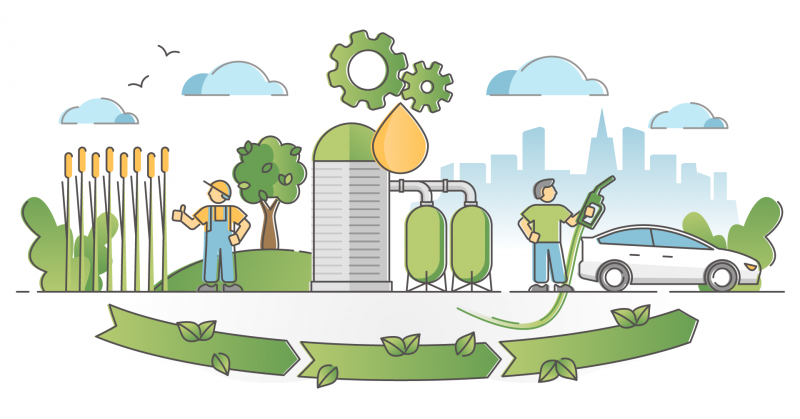Biofuels are renewable energy sources derived from organic materials, such as plants or animal waste. They are considered an alternative to fossil fuels as they release fewer greenhouse gas emissions when burned. There are three main types of biofuels:
1. Ethanol: Ethanol is produced by fermenting sugar or starch crops, such as corn, sugarcane, or wheat. The process involves converting the sugars into alcohol through fermentation. Ethanol can be blended with gasoline and used as a fuel additive or used in high concentrations in flex-fuel vehicles.
2. Biodiesel: Biodiesel is made from vegetable oils, animal fats, or recycled cooking oils. The process, called transesterification, involves chemically converting these oils and fats into biodiesel. Biodiesel can be used as a substitute for diesel fuel in diesel engines without any modifications.
3. Biogas: Biogas is produced from the decomposition of organic waste, such as agricultural residues, food waste, or sewage. This process, known as anaerobic digestion, involves bacteria breaking down the waste in the absence of oxygen, producing a mixture of methane and carbon dioxide. Biogas can be used as a fuel for heating, electricity generation, or as a transportation fuel.
Biofuels offer several benefits, including reduced greenhouse gas emissions, increased energy security, and support for rural economies. However, their production can also have environmental impacts, such as land use changes and competition for food crops. Therefore, sustainable sourcing and production practices are crucial for minimizing negative impacts and maximizing the benefits of biofuels.


